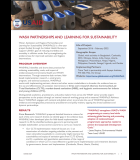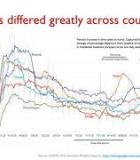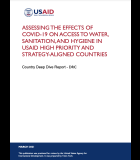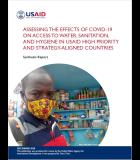Integrated Health Program (IHP)
The goal of USAID IHP is to strengthen the capacity of Congolese institutions and communities to deliver high-quality, integrated health services that sustainably improve the health status of the
Congolese population. The program builds on previous investments in health in the Democratic Republic of the Congo (DRC), USAID’s Country Development Cooperation Strategy and related Government of the DRC (GDRC) strategies and policies.
Activity Description
Program activities include cross-sector collaboration, sustainability, gender equity, gender-based violence (GBV), climate change, and innovation. USAID IHP will operate in nine provinces, operationally grouped in three regions of Eastern Congo (South Kivu and Tanganyika), Kasai (Kasai Central, Lomani, Sankuru and Kasai Oriental) and Katanga (Haut Katanga, Komeni, and Kolwezi). The program will provide support to empower health zones and sustainably improve the ability of the DRC health system to deliver quality services in reproductive health and family planning (RH/FP); maternal, neonatal, and child
health; nutrition; tuberculosis (TB); malaria; and water, sanitation, and hygiene (WASH). The program targets strengthening of both facility-level and community-level primary health care platforms, including provincial administrative authorities and local organizations.
Expected Outcomes
Within a three-pronged results framework, USAID IHP will use several indicators to monitor a wide range of outputs and outcomes. Strengthening Congolese health institutions and community structures should translate into improvement of the following health indicators: maternal mortality rates; neonatal, infant, and under-5 mortality rates; tuberculosis case notification rate; malaria prevalence rate; contraceptive prevalence rate; and acute and chronic malnutrition rates






